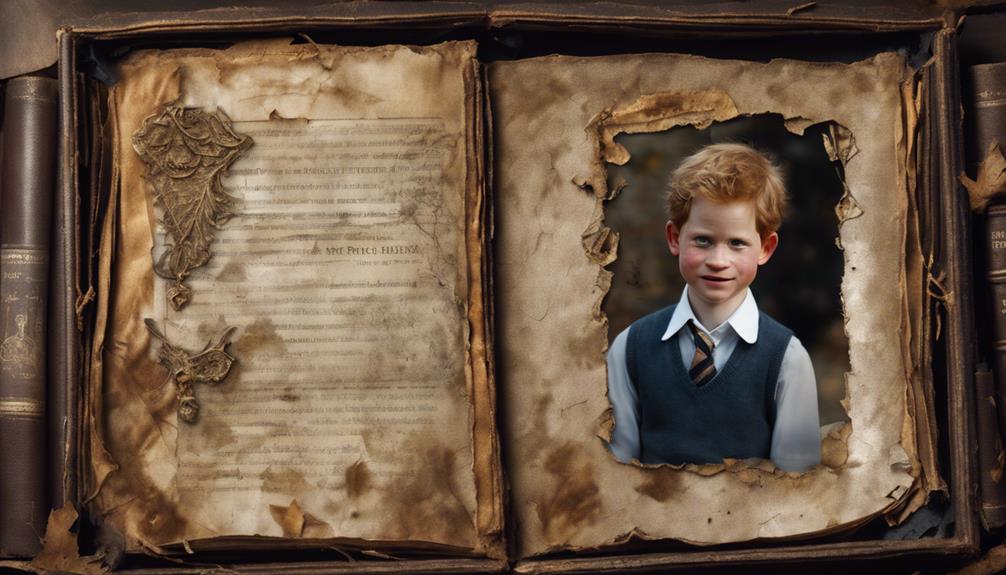Prince Harry's paternity has been a subject of speculation, with rumors suggesting James Hewitt, a former cavalry officer, as a possible father figure. However, Harry has clarified that his mother, Princess Diana, didn't meet Hewitt until after his birth. Despite this, physical resemblance between Harry and Hewitt continues to fuel rumors. The royal family's private navigation of Diana's passing and the emotional turmoil that followed has contributed to the persistence of these rumors. As the royal family coped with loss and grief, they employed unique coping mechanisms, including dark humor. But what lies beneath the royal family's complex dynamics?
Key Takeaways
• Rumors suggest James Hewitt as Harry's biological father, but he denies paternity claims and Harry clarifies his mother didn't meet Hewitt until after his birth.
• Physical resemblance between Harry and Hewitt fuels rumors, but there's no conclusive evidence to prove Hewitt's paternity.
• King Charles III has also been speculated as Harry's biological father, but this remains unconfirmed.
• Despite speculation, Harry's mother, Princess Diana, never publicly confirmed or denied any rumors surrounding his paternity.
• The royal family has never publicly addressed or confirmed Harry's true paternity, leaving the rumors and speculation to continue.
The Paternity Puzzle
Rumors surrounding Prince Harry's paternity have long fueled tabloid fodder, with whispers of Princess Diana's former lover, James Hewitt, being his true father. This royal secret has sparked intense speculation, with many questioning the legitimacy of King Charles III as Harry's biological father. Despite the rumors, Major James Hewitt has consistently denied the claims, attributing them to the sensationalism of tabloids.
Royal family revelations have often been shrouded in mystery, and Harry's paternity puzzle is no exception. In his memoir, Harry clarified that his mother didn't meet Major Hewitt until after he was born, dispelling the long-standing rumors. However, the rumors persisted, fueled by the physical resemblance between Harry and Hewitt.
This lingering question has become a staple of royal gossip, sparking debate about the true nature of Harry's parentage.
A Royal Tragedy Unfolds
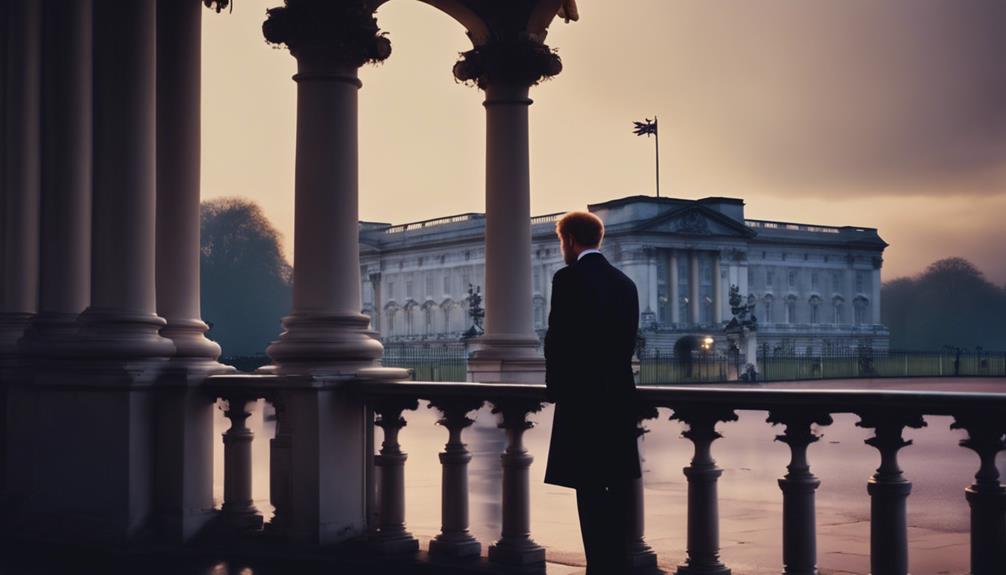
As the tragic news of Princess Diana's fatal car crash began to sink in, Prince Charles struggled to find the right words to break the devastating news to a young Prince Harry.
The prince's emotional turmoil was palpable as he grappled with the loss of his mother. Charles' attempt at comfort, however, felt insincere to Harry, who recalled feeling a sense of detachment from his father during this tumultuous time.
The prince's fatherly doubts, often joked about in the past, now seemed inconsequential in the face of their shared grief. The royal family's private tragedy unfolded, shrouded in emotional turmoil, as they navigated the aftermath of Diana's passing.
A Funeral to Remember
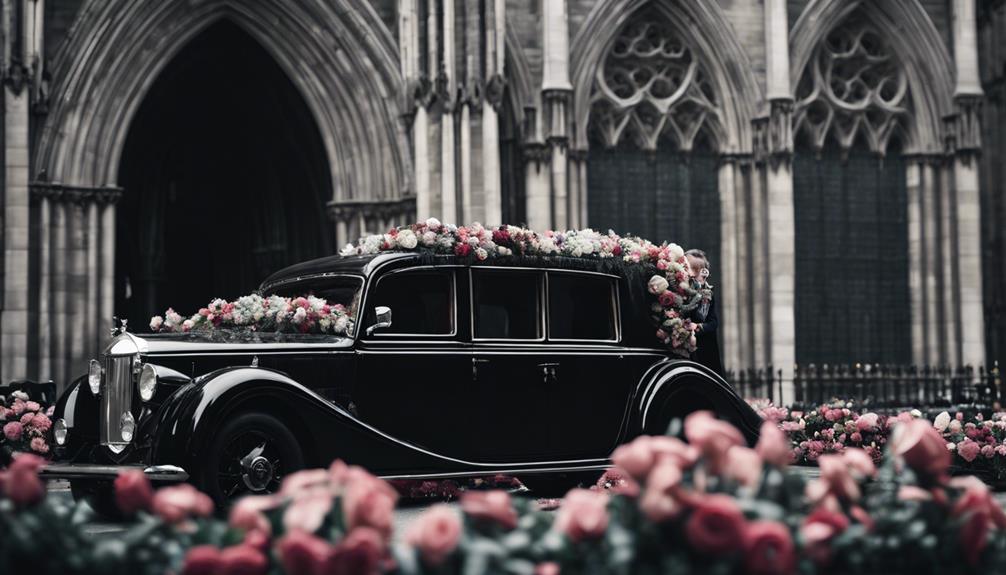
On the day of Princess Diana's funeral, a sense of somber solemnity gripped the nation as Prince Harry, alongside his brother William, prepared to walk behind their mother's coffin in a procession that would be etched in the memories of millions forever. The funeral reflections of that day would later become a significant part of Harry's emotional healing. Despite the controversy surrounding their involvement in the procession, the brothers drew strength from each other, exemplifying family unity in the face of tragedy. As they navigated their grief, they began to experience personal growth.
The funeral procession was a poignant display of royal tradition and pageantry.
The princes' participation in the procession sparked controversy, with some arguing it was too much for the young boys to bear.
The sounds of the procession, including the horses' hooves and the mourners' sobs, left a lasting impact on Harry.
The funeral marked a pivotal moment in Harry's life, one that would shape his future and inform his relationships.
Coping With Loss and Grief
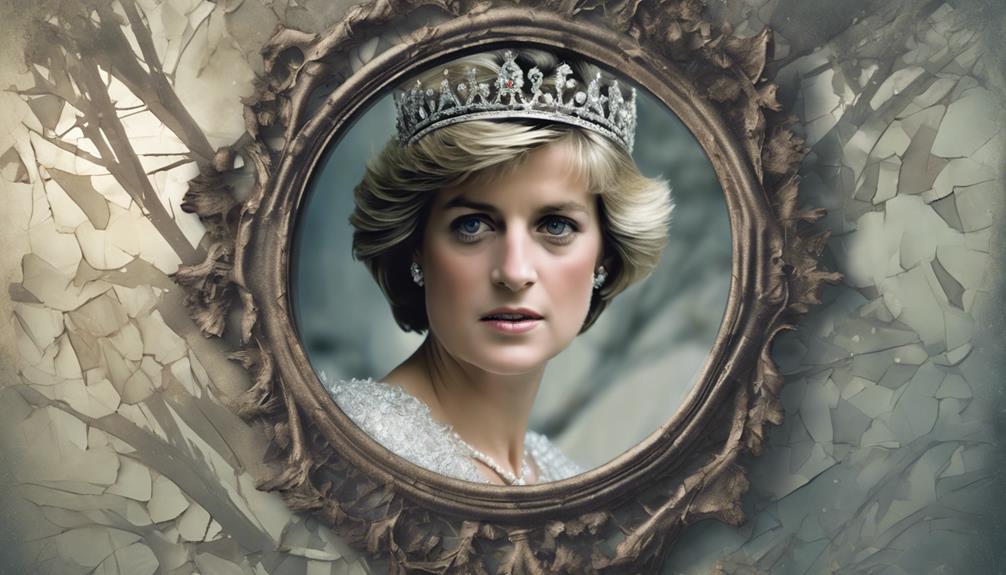
Prince Harry's struggle to come to terms with his mother's death was a painful and prolonged process, marked by feelings of numbness, denial, and ultimately, a desperate need for emotional support.
As he navigated the complex emotions of grief, Harry employed various coping mechanisms to process his loss. His healing journey was slow and arduous, involving a range of emotions, from shock and anger to sadness and acceptance.
The lack of emotional support from his father during this period exacerbated Harry's pain, making it difficult for him to find solace. However, the presence of his brother, William, provided some comfort, and together, they began their journey of coping with loss and grief.
A Royal Family's Dark Humor
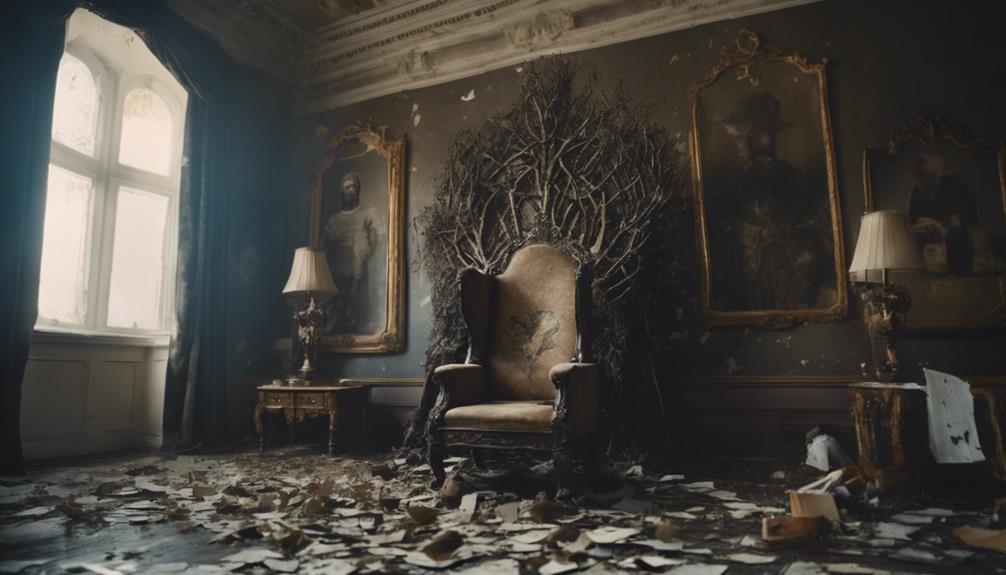
King Charles III's tendency to joke about Prince Harry's paternity, often at the most inopportune moments, revealed a dark humor that was both unsettling and intriguing. This peculiar sense of humor sheds light on the complex family dynamics within the royal family.
- Charles' jokes about Harry's paternity alluded to doubts about being his real father, referencing James Hewitt as a potential father figure.
- This dark humor was a coping mechanism, allowing Charles to address the sensitive topic with a sense of comedy and tragedy.
- The royal family's ability to find humor in the midst of tragedy highlights their unique approach to dealing with adversity.
- Despite the rumors surrounding Harry's paternity, the royal family's dark humor reveals a complex and multifaceted approach to family dynamics and tragedy.
Frequently Asked Questions
Did Princess Diana's Relationships Affect Harry's Upbringing?
Princess Diana's relationships likely influenced Harry's upbringing, particularly regarding her maternal absence. As a young prince, Harry struggled to cope with his mother's passing, which led to feelings of emotional numbness and a lack of emotional support from his father.
Diana's influence on Harry's life was profound, and her absence had a lasting impact on his emotional well-being, making it difficult for him to accept her death.
Was Harry's Emotional Response to Diana's Death Typical for His Age?
When a child experiences the loss of a parent, their emotional response can vary greatly. At 12 years old, Prince Harry's reaction to Princess Diana's death wasn't typical for his age. While some children may exhibit intense grief, others may appear numb or detached.
Harry's initial lack of emotional response, followed by delayed tears at the burial, highlights the complexity of grief in children.
Grief counseling and emotional regulation strategies can help young people process their feelings and adjust to their new reality.
How Did the Royal Family Handle Media Scrutiny After Diana's Death?
After Princess Diana's tragic death, the royal family faced intense media scrutiny. The Palace adhered to protocol, balancing public expectation with the family's need for privacy.
Amidst the media frenzy, the royal family navigated the fine line between transparency and discretion, ensuring that their private grief wasn't exploited by the press.
Did Charles' Humor Help or Hinder Harry's Grieving Process?
Charles' unusual sense of humor, which involved joking about Harry's paternity, likely hindered Harry's grieving process. The royal humor, although intended to lighten the mood, came across as insensitive and unfunny to Harry.
Instead of coping with the loss, Harry struggled to accept Diana's death, and Charles' jokes about his paternity only added to the emotional turmoil. This coping mechanism, meant to alleviate pain, ultimately exacerbated Harry's grief.
Were There Other Rumors Surrounding Harry's Paternity Besides James Hewitt?
Beyond the persistent rumors surrounding James Hewitt, Palace whispers hinted at other paternity speculations, fueling a tabloid frenzy.
Although never gaining significant traction, these whispers contributed to the ongoing scrutiny of Harry's parentage.
Despite the lack of concrete evidence, these rumors persisted, often perpetuated by tabloid interest and public fascination with the royal family's private lives.
Conclusion
To sum up, the rumors surrounding Prince Harry's paternity have had a profound impact on his life, contributing to a complex and tumultuous relationship with his father, Charles.
According to a 2011 survey, 46% of Britons believed James Hewitt to be Harry's biological father, highlighting the persistence of this rumor.
Despite this, Harry has emerged as a strong and resilient figure, maneuvering the complexities of royal life with grace and determination.

